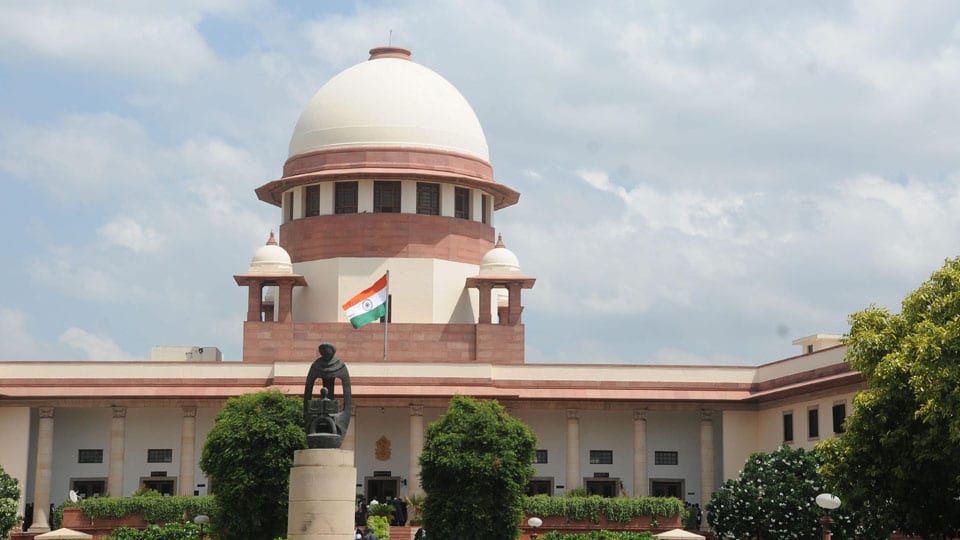New Delhi: The Supreme Court has declared that daughters by birth become equally entitled to ancestral properties as sons, with the 2005 amendment to the Hindu Succession Act, 1956. “The amended provision now statutorily recognises the rights of coparceners (a person who shares equally with others in the inheritance of an undivided property) of daughters as well since birth.”
The section (of amended Act) uses the words in the same manner as the son. It should, therefore, be apparent that both the sons and the daughters of a coparcener have been conferred the right of becoming coparceners by birth,” a bench of Justices A.K. Sikri and Ashok Bhushan said. The Court said the law relating to a joint Hindu family governed by the Mitakshara law has undergone unprecedented changes. The said changes have been brought forward to address the growing need to merit equal treatment to the nearest female relatives, namely daughters of a coparcener.
“These changes have been sought to be made on the touchstone of equality, thus seeking to remove the perceived disability and prejudice to which a daughter was subjected,” the Bench added.
With the amendment, a daughter would not only be entitled to have the same rights and liabilities as to that of a son, but she would also be capable of disposing of those properties either by a will or any other testamentary disposition. The top Court explained the provisions of the law in a judgement on a civil appeal filed by daughters of Gurulingappa Savadi against the Karnataka High Court judgement. Savadi’s sons opposed daughters’ claim to the property of the Hindu joint family.
They contended that the daughters were born prior to enactment of Hindu Succession Act, 1956. The sons also claimed that the daughters relinquished their share as they received gold and money at the time of their marriage. Rejecting sons’ contention, the Court said, “It is the very factum of birth in a coparcenary that creates the coparcenary, therefore the sons and daughters of a coparcener become coparceners by virtue of birth.”








Recent Comments